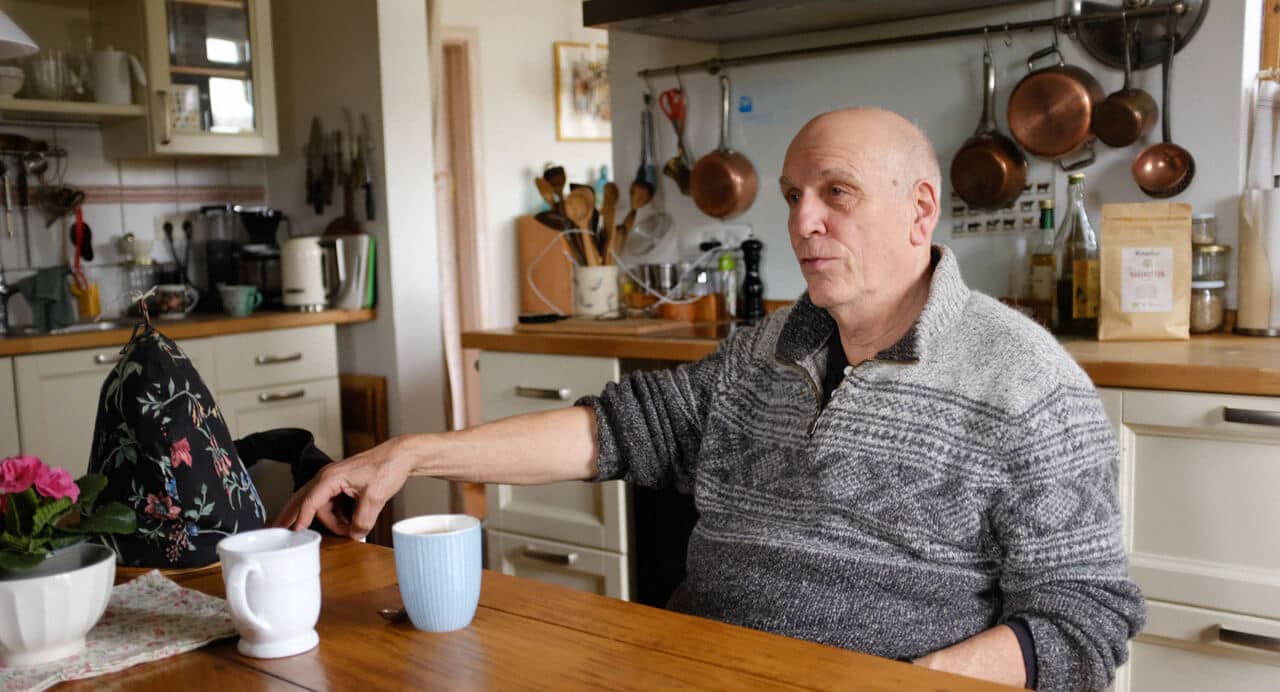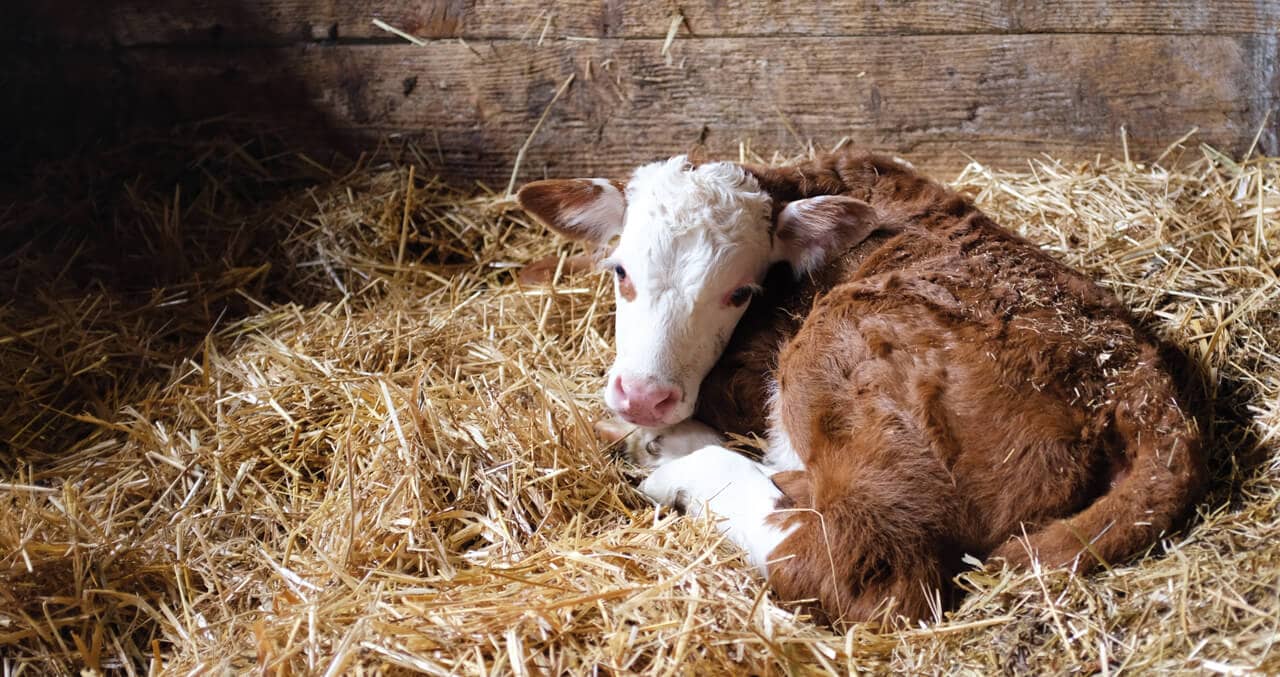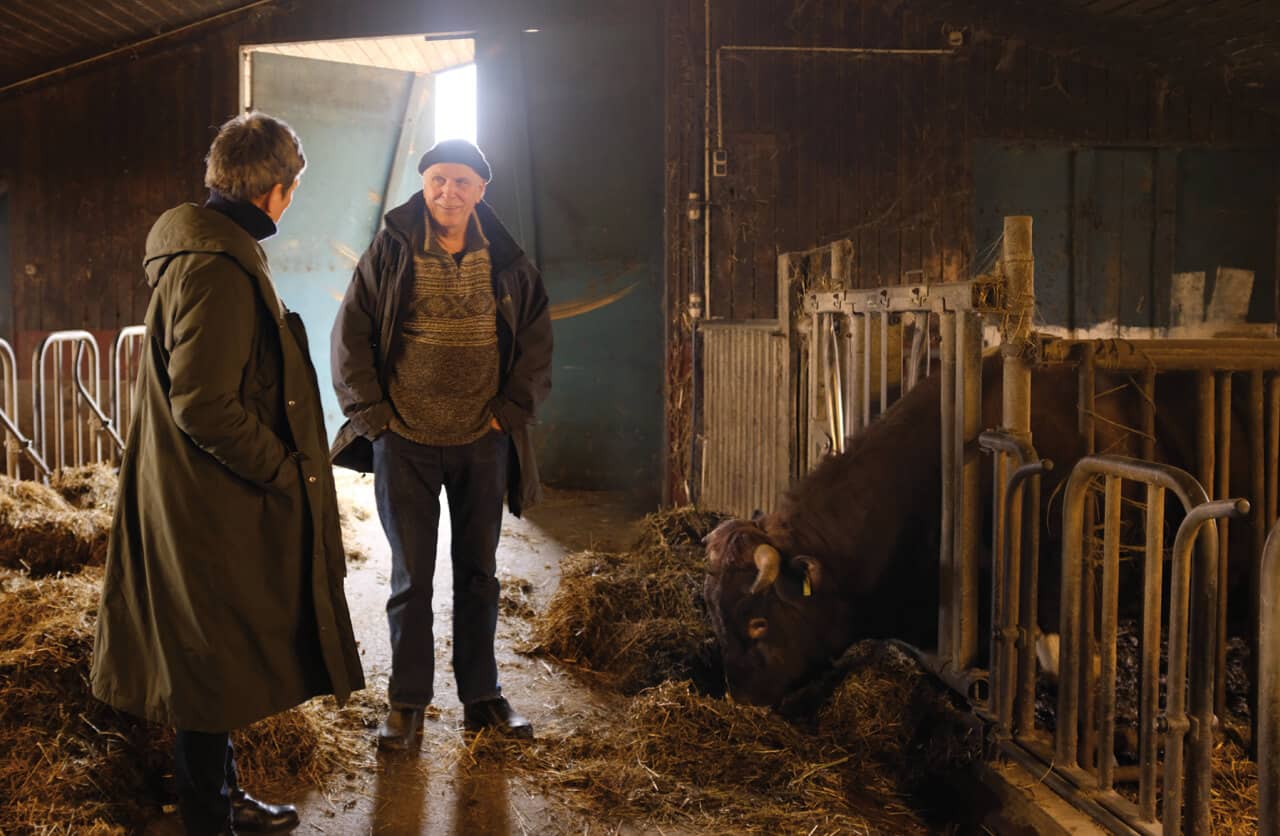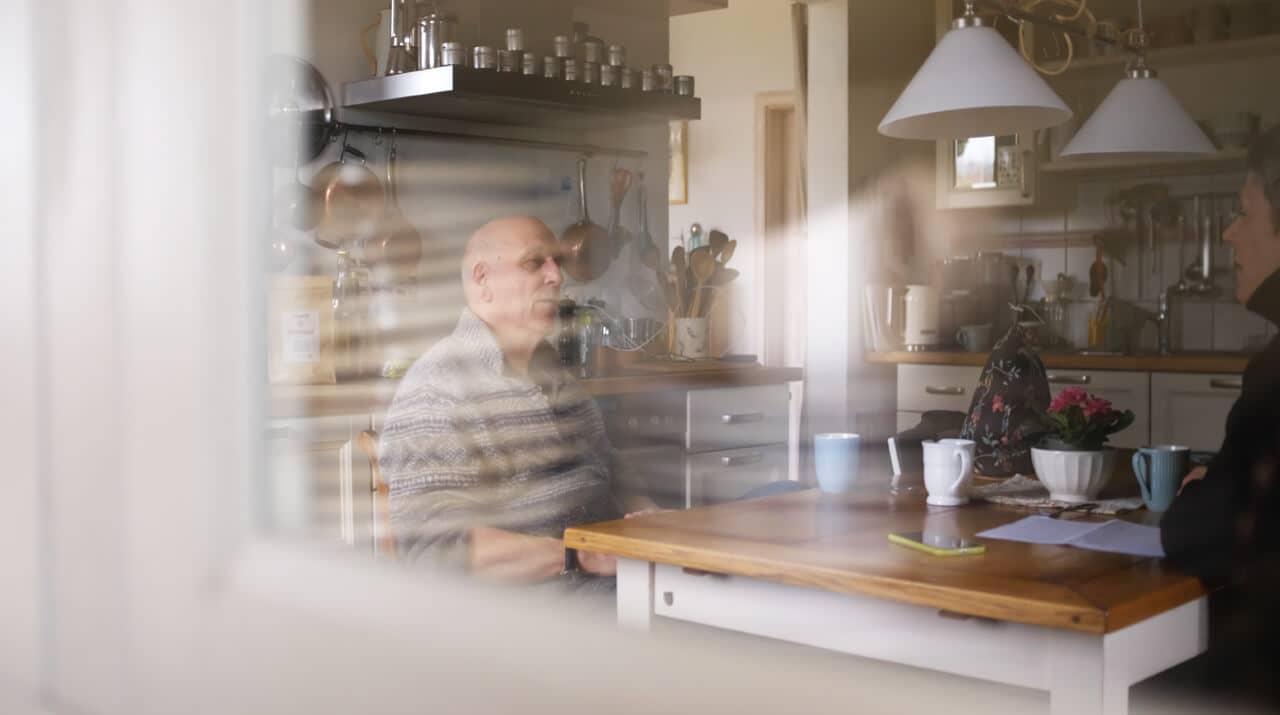When we spoke on the phone a couple of weeks back, Christof Klemmer was quite skeptical and wondered why “of all the people” he would be the right one to talk about this topic. But as it turned out: He has plenty of things to say (even though he tiptoes a bit around the term “respect”).
Barbara: Mr. Klemmer, in 1979 you and your wife took over Sophienlust. As someone who was not the son of a farmer, but still you developed a prospering Demeter farm with lock, stock, and barrel, including a social project. And after more than 35 years you handed it over to your successors, who are not your children. Would you do it again the same way?
Christof Klemmer: Yes, definitely. I would love to do that again. I am not sad about being old, because being older also has some positives sides. And I am surprised that I am being asked for help and advice a lot. That way I have enough to do, and I enjoy that. But: Yes. I would do it all over again. It is such a pleasant work, which I consider so meaningful. Of course, you are very involved, have long days, which does not mean though, that you are working 12 hours straight, but maybe 8. But you always need to be present. The animals might need something, a drainage might be clogged and so on. The good thing about it is, that you quickly realize if you had the right idea in mind. If you put your thought into action. As a farmer you realize immediately if you are thinking or acting correctly.
B: Because it works out? Or it just does not?
CK: Yes, you can tell by the growth. If it grows, the soil develops, and thus, the soil fertility develops. If it does not grow, all of that does not happen. There is no other job where this becomes so clear. It helps you to adjust the way you think and feel, you must act really straightforward.

B: You told me that you learned your craft from scratch. The biodynamical agriculture and the conventional one as well. Which leads us to our topic: What is the “philosophical” difference between these two methods? The attitude towards nature?
CK: The Anthroposophy conjectures that there is a spiritual world, which is outside of us and at the same time inside of us. There is this one sentence by Rudolf Steiner:
“Anthroposophy is a path of knowledge, to guide the spiritual in the human being to the spiritual in the universe.”
Of course, that is a quite specific perspective, but very satisfying to me. To think about nature, to restrain oneself and realize: What does nature want, what is happening? How can you react in a way that reinforces its existence? And maybe even recognize the Genius Loci, meaning the spirit of a place. You are working on making it better. These are the fundamental ideas of the biodynamical agriculture. It was fascinating to me back then and it still is. I am constantly striving to understand it all.
When you look at the conventional agriculture, then it is always about a system with the input of mineral fertilizers or concentrated feed. It’s used as manure for the soil or simply as mineral fertilizer, if you don’t have animals. Then you have an output that can be sold. The nutrients are gone. And you must use more mineral fertilizer.
The biodynamic approach is very different. Here you try to close the soil-plant-animal-cycle. Especially the cattle are important, because they show special qualities when it comes to their digestion, which supports the positive development of the soil fertility, because the nutrients are getting back into the soil through their dung. All of this has been proven scientifically.

Usually, you would say that the soil degenerates when you don’t add more fertilizer. But with this approach the situation changes: The transition from a chemical dominated soil process to a biological dominated soil process. Of course, we do not have the same amount of harvest compared to others. When they harvest 100 quintals, then we harvest 50. But we are doing it way more energy efficient. When we first started, Professor Heidemann from the University of Kiel studied the effects of this transition on the development of small animals, meaning ground beetles and spiders. The effect was huge. Eventually, we had a ten times larger diversity of species and amount compared to our neighbor, wo practices conventional agriculture. That is the closed cycle: The soil regenerates, the small animals come, then the birds, mice and so on. That’s when you have an antagonism again regarding beneficial animals and parasites. The cycle is stimulated by precisely dosed preparations. When I was a trainee, many people still laughed about this approach.
Today, a long-term study (the so-called DOK study) has shown, that the biodynamical system with the compost and the use of biodynamical preparations results in the most enlivened soil as a result if this kind of cultivation.
Bi di sütt dat alns so schier ut.
B: What do your “conventional” neighbors have to say about that?
CK: Our immediate neighbors, the farmers, are very nice, but skeptical. One of them came to me after 30 years and said, in Low German: “Weetst du wat, dat will ik di mal seggen, bi di sütt dat alns so schier ut.” (You know what, I want to tell you one thing, everything here (on your farm) looks so nice). He could have mentioned that 20 years earlier, though (he smiles).
B: You acted as an example for others, without missionizing – your neighbor saw that it worked. Is that a way to earn respect?
CK: I believe what really matters is, that you can have different opinions, approach things differently, and still be friendly with each other. That you can differentiate between things. Diverging opinions and attitudes towards things do not have to result in a fight. In fact, it is more of a personal gain, to see what others do differently. When you say “Okay, you are a human being just like me, and you are doing you things your way, and maybe different from how I would approach it, but I see you as a person, as a human being, and an individual.” Maybe respect is not a bad term in this context.

B: And how do you achieve that?
CK: You cannot force it. I think, one of the principles of Anthroposophy describes it quite well. As Steiner said: it is crucial to understand the other person in their own ways, their own individual character, their essence. But to do that you have to free your mind, meaning not to think the following when you meet someone: “Oh he looks like that, and he is dumb, and he did that to me”. But to be unbiased. And to create a space for other humans, and for nature, because that is the same. Then, you do not only tolerate the other one, but you also appreciate them. Appreciation is more than tolerance – and I believe that is the secret: You must make an effort to capture the other one in their essence, their nature, and not with your opinion.
B: But there are currently many opinions in the social debate.
CK: Yes, unfortunately. There are opinions on everything. There is no serenity to approach things calmly and to also restrain at times. Take a look at our society, the problems that we are facing. The eco-crisis – the biggest problem about it is, that we do not go out into the world without our preconceived ideas and opinions: We must have growth, we must be like this and like that. We never think: “What is really necessary here? Which consequences do my actions have?”. There are only reconceived opinions – and they will never lead to reality, nor to freedom. The same applies to the spiritual level. If you are always preconceived about everything, then you will never find happiness spiritually or – how should I put it – mentally. Actually, we are in a huge mental crisis ecologically, economically, and socially. And the reason for that is that we are so biased.
The Anthroposophy seeks inner freedom for the human being and to clarify what is appropriate and right in a specific situation through unbiased thinking and grasping of facts. That also applies to the thoughts about one’s own thinking and acting.
B: How do you learn that?
CK: Practice! I dealt with it for years. We used to live here in a large community, with 35 people. And of course, it is annoying when something does not work out. Then you go home and think about it. Was what you did right? Was it good? Was it not good? In fact, you did not do what you can be or want to be, but you exploded, because you were annoyed, because it was about money. But after a while you learn to handle it right – it is a very very long process. But if many people strive for it, then it works out, despite all the differences.
Highly potent materialism.
B: Why did the condition our society is in escalate like that?
CK: I believe, there are various reasons. First of all, there is a highly potent materialism. We do not have anything except material, except reductionist thinking, except personal advantage, except money, power, career. That is a crucial factor. Secondly, I believe, because of electronic media. People are being completely overloaded by them. I know, I also use them myself, I also have a computer. I do not own a smartphone, but my wife does, and I use it as well. I clearly see the advantages. But it can also get out of hand – Facebook here, Facebook there, people getting into shitstorms – I believe that all of that also plays a role.
B: I think that the communication with one another has become quite anonymous.
CK: That’s it. I was in a hotel recently. During breakfast there was a couple sitting at the table next to us. There were three of us and we talked with each other – and these two they only looked at their smartphone and did not speak a word. That is actually really sad. I am not nostalgic, but when you think about what people used to do in the past – they talked more, they celebrated more, they sang together. I do not want to say that that was an ideal world, it was also difficult, but they communicated in a more directly manner than they are doing today.
Keep calm.
B: How did you manage to find the “right” successors? Is it not quite difficult, to hand over a company – which this farm is – that has worked with such a “spiritual” approach, to a completely different generation or to transform it without selling your soul?
CK: Yes, that is very difficult, also for us! A very difficult process, but it is important to keep calm.

After we had handed over the farm, I worked as a consultant or Demeter for another 7 years and there, I dealt with many young people. You can tell that they have a different approach, but when you talk with them and listen to what they are saying, then you realize, that they are quite spiritual as well. Just on a different level than us.
I recently attended a work group on agriculture and meditation. The first part was about praying and working. That is not very modern, and I was curious what it would be about. The young people, who were there, mainly young women, did not have any problem with praying and working. I was very surprised, when they described what they consider praying – meditation – and their experiences with it. All these young people between 20 and 30, they have a spirituality. It is just different from ours, not as intellectual. This maker-mentality, that we had, is not really their thing, more like: “We want to work a little less, we want to focus on the content, and it is not so important to us, that we create something big…”
I usually restrain myself when it comes to the young farmers, but sometimes it just happens that I say something about structuring things differently or working a bit more. Then they object and say “No, we do not want to work so much, we do not do it like you did”. But on the other hand, when I look at how much they are invested – they show a lot of commitment. They might have a different relation to it, one could think that they are lazy, but they are not. Once they gain momentum it works quite well.
B: Do they also come to you for advice?
CK: Yes, every now and then. But I understand that. I would have liked to have someone who I can ask, but I am not sure if I would have do not it.
B: So, eventually you are a person of respect, with all the lectures, all the young people, the neighbors?
CK: Respect (he smiles), for me that is a word from the past. I had respect for my teacher. It makes me happy when a person, no matter if disabled* or not, appreciates me for what I have done, for what I have done throughout my life. It makes me happy, but I do not demand that, I am one out of 8 billion.

*C. Klemmer is referring to the social division of the farm, which offers jobs, housing, and living for people with disabilities.




